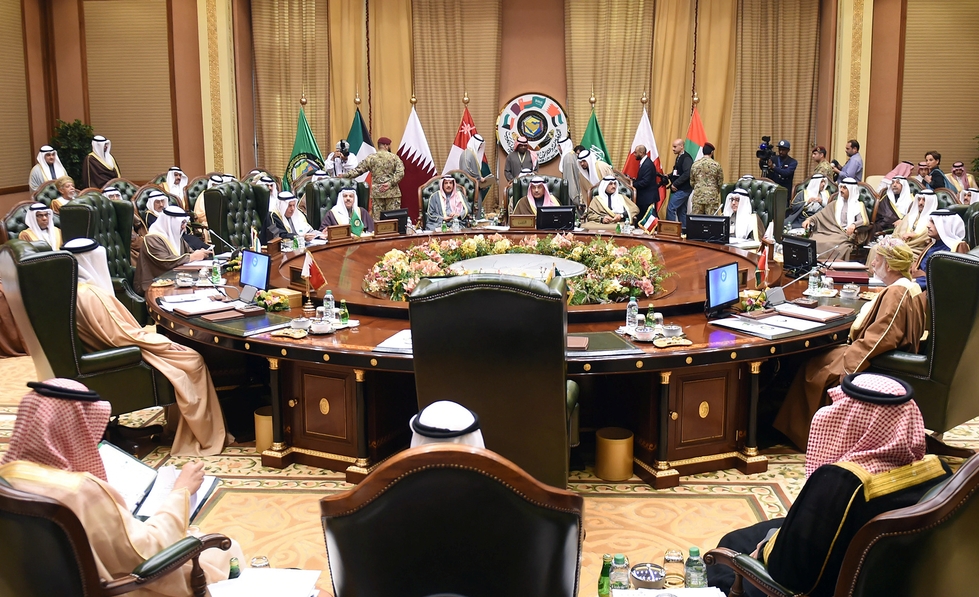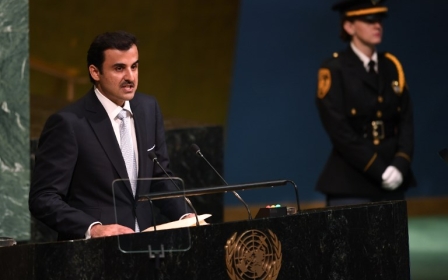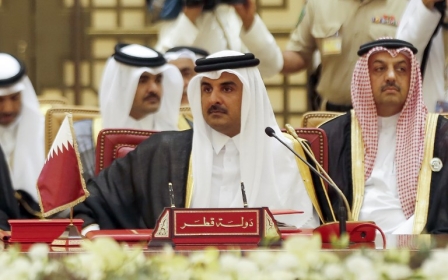Qatar minister meets Gulf counterparts for first time since siege

Qatar's foreign minister Sheikh Mohammed bin Abdulrahman al-Thani met Gulf counterparts on Monday before the start of the annual GCC summit in Kuwait.
The meeting is the highest official encounter between Gulf foreign ministers after Saudi Arabia, Bahrain, Egypt and the UAE imposed a blockade on Qatar six months ago.
Thani said a day earlier that Qatari Emir Sheikh Tamim bin Hamad al-Thani would attend the six-nation Gulf Cooperation Council (GCC) meeting on 5-6 December, despite the dispute within the group.
The rift revolves around allegations by Saudi Arabia, the United Arab Emirates, Bahrain and Egypt that Qatar supports terrorism and is too close to Iran. Doha denies the charges and says the four countries are trying to force it to fall in line with their own foreign policy.
Sheikh Mohammed sat around a large wooden table in Bayan Palace with representatives from Saudi Arabia, the UAE, Kuwait, Oman and Bahrain to make preparations for the top-level summit.
This year's annual summit proves particularly significant in light of news that former Yemeni president Ali Abdullah Saleh has been killed by Houthi rebels.
The agenda of this year's summit has not been made public, but there are expectations that the Yemen crisis will be at the forefront of discussions.
Kuwait as mediator
Since the Qatar crisis began six months ago, Kuwait has played a role as mediator in a bid to resolve the ongoing diplomatic dispute.
But no progress has been made and vocal attacks continue to take place by the Arab quartet against Qatar via its media outlets.
Most of the provocation has come from UAE officials, whose government has made it a cybercrime for their citizens to show sympathy to Qatar, an offence that is punishable by up to 15 years in prison.
Saudi and Bahrain have similarly criminalised expressions of support for Qatar.
OPEC chatroom 'dead'
The Qatar crisis has also forced Gulf ministers to scrap a tradition of meeting behind closed doors to agree on policy in the lead up to the bi-annual OPEC summit.
"We used to have a WhatsApp group for all ministers and delegates from the Gulf. It used to be a very busy chatroom. Now it's dead," a senior source in the Organisation of the Petroleum Exporting Countries told Reuters.
Four other sources told Reuters that there had been no official contact on oil policy between the Gulf Arab nations after the Qatar crisis took place.
The GCC includes OPEC members Saudi Arabia, the United Arab Emirates, Kuwait and Qatar and non-OPEC Oman and Bahrain.
"The ministers can't meet," another OPEC source said. "They may relay the message through the Kuwaiti or the Omani oil ministers, but Saudi and the UAE cannot meet publicly with the Qataris."
Oman has also refrained from taking sides in the dispute.
New MEE newsletter: Jerusalem Dispatch
Sign up to get the latest insights and analysis on Israel-Palestine, alongside Turkey Unpacked and other MEE newsletters
Middle East Eye delivers independent and unrivalled coverage and analysis of the Middle East, North Africa and beyond. To learn more about republishing this content and the associated fees, please fill out this form. More about MEE can be found here.




